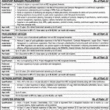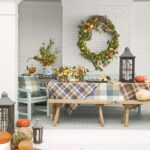I was asked by one of our fans about occasional cracking or popping sound coming from roof concrete slab which was cast just a year ago. This cracking sound was being heard in day as well as during night times.
Why Does my Roof Keep Popping?
Actually there are a lot of factors that are unknown like the thickness of the slab, reinforcement that is being used is sufficient or not, are there any cracks, if yes how much is their width or so. The only known thing here is that the slab cast is just one year old. And a slab that is just one year old is more likely to be safe and sound.
Actually the concrete just after casting in a slab starts to shrink due to heat of hydration which should be controlled. Due to this shrinkage some cracks may also appear but would most likely be of hair thin like. When the formwork is removed and the slab is started to carry the load it also deforms under dead load and is likely to crack as well. But the slabs are designed by following ACI Code standard in which effective cross-sectional area is considered. In this area the cracked portion is not considered as it is already crossed the yield and fracture strength.

Don\’t lose sleep over the loud cracks and bangs you\’re hearing at night
During design the serviceability requirements are considered that the deflection in slab due to bending moment should not be enough to scare the occupants and the cracks should be controlled as well. Keeping this in view even if the cracks appear and the cracking sound is heard you should not be worried. Actually the roof slab is also subjected to harsh and severe weathers so due to this heat and significant temperature changes this sound may also appear.
There was also one expert who suggested that if the tiles are there on the top roof than most probably those tiles are a cause of the popping sound, so you should not worry much.
Dramatic temperature change gets that roof popping
Popping, cracking and snapping sounds coming from the roofs, especially when the colder weather hits is a common problem. The sun shines on your roof all day, warming the tiles and sub roof. As your house quiets down at night, and the temperatures fall, the cooling of your roof components can often be heard.
Snow and ice build-up are another reason for roofs to pop and creak. If you notice excessive, or unusually loud cracking and popping sounds after Mother Nature has piled frozen precipitation on your roof, it may be wise to investigate further.
Take a look around your home and note any signs of gutters pulling away from your roof line. Step back and look for puckers and out-of-place roof tiles. examine eaves troughs for roofing material that may have come loose.
Solution to the Pooping Sound
The solution depends on the cause of the problem. For roofs with structural deficiencies, roof repair is necessary. As explained here that If the noises are simply a product of expansion and contraction in hot and cold temperatures, the best course of action is to improve the insulation in your roof to better moderate temperatures and even insulate your home from the sound.

















